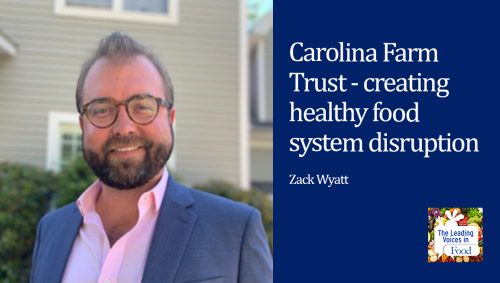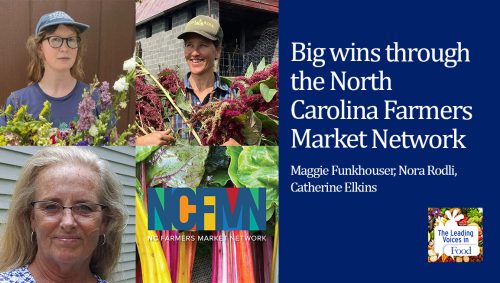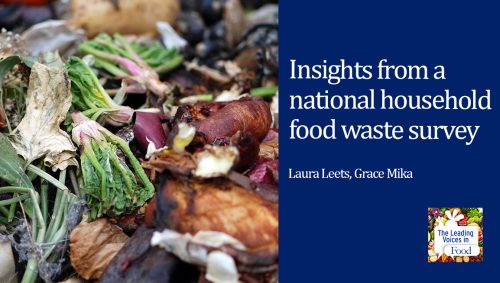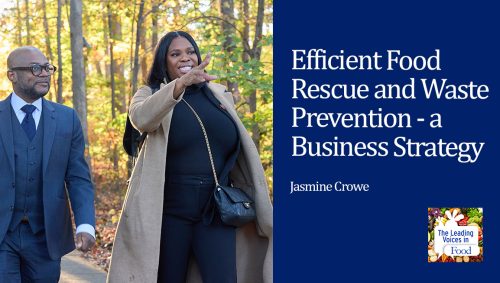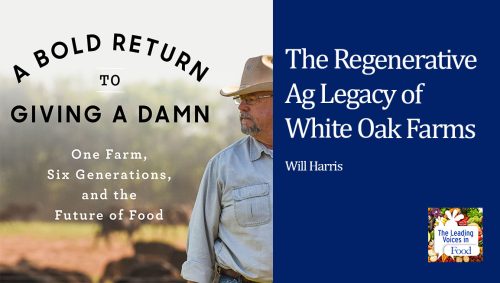The Leading Voices in Food
E13: Mark Bittman on Eating Sustainably and Agroecology
Many people in the modern world have become distant from their food. They may not know where it’s grown, who grows it, who produces it, or who harvests it, what impact its production has on the environment, how it is processed, how to prepare it, and more. A champion of shrinking this distance and of understanding how all these pieces fit together is an activist, and an advocate, and a journalist. A person whose career has been devoted to making it easier for people to eat healthy food, and good food, Mark Bittman.
Subscribe: Apple Podcasts | TuneIN | Google Podcasts | SoundCloud | PocketCasts | Radio Public
Tags: Agriculture & Tech | Climate Change, Environment & Food | Regenerative Agriculture |
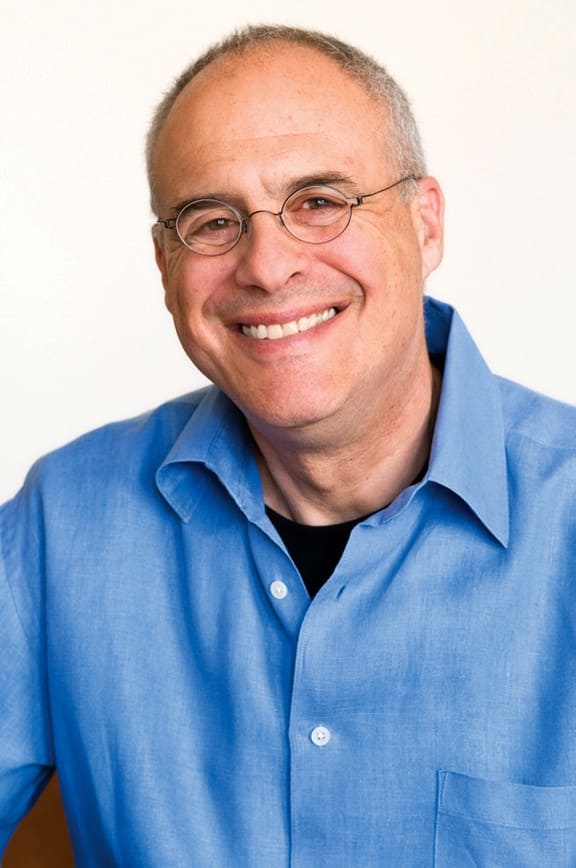
Mark Bittman was an opinions columnist for the New York Times, a food columnist for the paper’s dining section, and the lead food writer for the New York Times magazine. His column, known as The Minimalist ran for more than 13 years. He also hosted a weekly Minimalist cooking video on the New York Times website. He is a member of the Faculty of the Columbia University’ Mailman School of Public Health. He also appeared as a guest judge on the Food Network’s Chopped. Mark is the author of 14 books, including the bestselling book “How to Cook Everything,” which I happen to love, and “Vegan Before 6.”
Interview Summary
You were a correspondent for the climate change documentary called Years of Living Dangerously. Why would a climate change documentary include a food journalist?
Well, you know, it’s interesting that you’re asking that question because in a way it was a bone of contention between the producers and me. I thought there should have been much more food substance in Years of Living Dangerously. They wanted to do some and they also liked me. They liked my voice, they liked my TV presence and so on. So, I wound up reporting on methane production–but not from cows. From leaks and methane wells and on hurricane or Superstorm Sandy and its impact on the New Jersey coastline. So I really didn’t get to talk about agriculture, but as, as you know I’m sure, agriculture is a major contributor to greenhouse gas production. And quite possibly the leading if not the second leading, it depends how you look at it, contributor to climate change. So I’m still waiting for the show that talks about climate change and agriculture because it is a big deal.
So our listeners will have varying levels of knowledge of the impact of food production on the environment. If you to put together a show that you just said mentioned, what would you include in it?
There are many problems with agriculture in the industrialized West. But, I think probably the primary one is our is industrial production of animals–it is the biggest single contributor to climate change in agriculture. And it also has a number of other egregious environmental effects. So from the lagoon, the waste lagoons that are the result from hog production to the air pollution that results from chicken houses and so on. I mean, we’re talking about anonymous looking barns that may have hundreds of thousands of chickens in them, and thousands of hogs in them. Which are, you know, really, really big numbers of animals kept in crowded, torturous and pollution-producing situations.
Is there an alternative to these kinds of things if the world wants as much meat as it does?
Well, the second half of that question sort of takes issue with the first. The alternative is really going to be to eat less meat. And, you know, what’s happening in the world today is that countries like India and China with huge populations, and increasing numbers of people with relative wealth–and the word relative is important here–but enough money to be able to buy meat. Those people want to eat like Americans have eaten for the last 50 to 70 years. But the real key to environmental sanity and a number of other things, but let’s just say environmental-ecological sanity, is for us to eat the way the Chinese and the Indians have eaten traditionally. Which is to say a more plant-based diet. And I wouldn’t say meat is forbidden. I wouldn’t say that we have to stop eating meat. But from a public health perspective. And a personal health perspective, and environmental perspective, and for that matter from a moral perspective–we’d all be better off eating less than half the amount of meat we now.
What I’m hearing from you is a little unusual to be hearing from a cookbook author. There are people who write food cookbooks, or food columns, for example. People who work on environmental issues, who are advocates–but not that many people do all these things. You do. Why do you believe it’s important to put all these pieces together?
I love that question by the way. I do think that cooking remains an important tool in helping people eat better. When you cook, it’s almost impossible to eat as badly as you do when you don’t. When you look at what you’re putting in your body in a raw, unprocessed state, it’s much easier to eat well than it is when you go through a drive-through window and just ask for whatever you’re craving. And you and I both know we could spend a lot of time talking about the degradation, I guess is the word, of the food environment. The way that food has been increasingly presented to us in the last 50 years. Which just makes it easier and easier for people to eat badly.
Cooking is one of the tools that helps people eat better. At the same time, we need policy changes. We need to be pressuring food companies to do things differently. We need regulations so that our food system doesn’t increasingly produce food that’s bad for us while having a negative impact on the environment. And that is not something that is under an individual’s control. Those are societal changes. So while I started out as a cookbook author and I do strongly believe in cooking, I also think it’s important to talk about the kind of changes we need to make as a group, as a society, in order to produce food better, eat better food, and steward the land and the earth in general better.
What’s happened with norms around cooking over the years and how many people are doing it compared to before?
Well, it’s very hard to gather numbers because if you go to the store and buy a microwave pizza, buy a chocolate cake, and buy a six pack of coke. And you bring that home and microwave the pizza and cut up the cake, that counts as cooking according to USDA numbers. So it’s hard to know. It’s hard to know who’s cooking what and how many people are doing it.
Anecdotally, it does seem like the numbers plummeted in the seventies, eighties, and nineties, and have climbed a little bit since then. That is Millennials are cooking more than the generations that preceded them. But for real numbers, it’s hard to know when one of the indicators of how many people are cooking versus how many people aren’t is chronic disease. And we believe, and some studiesthat would back us up, we believe that the more you cook, the less susceptible you are to chronic disease such as diabetes and coronary artery disease, high blood pressure and so on. Conditions that are caused by the way we live. A lifestyle, which may mean everything from smoking to cooking to eating to exercise and so on. As chronic disease numbers increase, and they have, it’s easy to believe that the numbers of people who cook or are going down.
If the numbers are trending up for the Millennial generation, why do you think that is? Is it because they’re more interested than generations that preceded them in the story of their food, where it came from, how it was produced and things?
Well, I think there is that, but I also think in the last 20 years, let’s say it’s become increasingly evident that the food system does not serve the people that it should be helping. That isgreater:, the greater population. And that’s caused many people, starting with Frances Moore Lappe in the seventies, but continuing with Eric Schlosser and the film Food, Inc. And so on. People have been exposed to information about how the food system is not serving them, and they’re trying to figure out, at least some are trying to figure out, how to make it work better for greater numbers of people.
If we’re talking generalities, and it seems we are big picture stuff, I want to say that if you asked most people what a food system ought to look like, they might give an answer like: it should provide the greatest number of people with the best nutrition possible while doing the least damage that it possibly can to animals and the land and workers and so on. And that is not what we have. We have a food system that’s designed strictly for the profit of the people who are running it. And that’s a bad public health decision, and that’s a bad environmental decision. And I think people are starting to see that and trying to turn that around. At least I hope so.
That represents a big change because at one point if you’d ask people what a good food system would be, it would be two whoppers for $2.
Well, if you know, if that’s your definition of a good food system, then we’re practically there! But when you look at chronic disease numbers and when you look at environmental damage and so on, then you’re looking at something different than two Whoppers for $2. It does depend what you think is the greatest good for the greatest number. I suppose.
Let’s shift gears a bit and talk about your book Vegan Before 6. In this book, you discuss a flexitarian way of eating. Could you explain that concept?
I mean really, flexitarianism is not that different from being omnivorous. That is to say, someone who defines themselves as a flexitarian will eat everything, or can choose to eat everything. But the trends in good diets today is to emphasize plant foods. And the trend is to emphasize unadulterated, minimally-processed plant foods. So it’s fine to say eat more plant foods, but let’s remember that both French fries and coke have their origins in plants. So we have to talk about what kind of plants we want to emphasize. And, as most people know, that means unprocessed fruits and vegetables, whole grains, olive oils, nuts, and seeds. So, it doesn’t mean you can’t eat meat. You can eat dairy, you can eat cheese. It doesn’t even mean you can’t eat junk food now and then. It means that the emphasis on our diets should be unprocessed plant food. And that in a way goes back to one of the earlier questions you asked earlier, which is how we canwe continue to eat and produce meat at the rate that we are? And the answer is we really cannot.
It’s a diet of kindness, isn’t it? So it’s a diet that is kind to the environment, kind to animals and kind to your own health.
I thought you were making a pun, but yeah, it’s a diet of kindness. But it’s also a diet of respect and wisdom. I mean, if we want to be here a hundred years from now, we want to consider ourselves people who do the right thing. And we want to live long enough to do the right thing, then we need to take a close look not only at our diets but at the way we produce food because agriculture and diet are closely aligned.
They could not be more closely aligned in that each affects the other. So how do we grow food and what food do we choose to grow? What food do we choose to eat and how do we produce it? These are all kind of the same question. And if we want those things to be sustainable, which is, if, you know, people sometimes mock the word sustainable, but it’s a very real and useful word. If we want those things to be sustainable, if we want human and other life on earth to be sustainable, then we need sustainable agriculture and sustainable diets. And that’s not what we have right now.
As you project out into the future, what are some pieces of the food picture that alarm you most?
You know, it’s sad but true that you and I had this discussion 10 years ago, and I think the answers have not changed much. I have a pet three things that alarm me the most, but one of them is the routine use of antibiotics in the production of animals. This is something that could be easily changed and could have been changed 10 years ago. It certainly should have been changed during the Obama Administration. And it hasn’t been. So if you’re giving animals antibiotics routinely, prophylactically, preventively, then you’re enabling the crowding of animals in production facilities, and you’re making antibiotics less efficient, less effective when it comes to treating humans. That is really a scary thing. And as a result, we have bacteria that are antibiotic resistant now that we didn’t use to have. And humans are dying as a result of this.
So that’s my number one. My number two, and I know you and I are closely aligned with this, my number two is that there’s virtually no regulation on the selling of junk food to children. And that means that we’re normalizing bad diets for kids who don’t know any better. Which means every year that happens means another year of adults who struggle with bad diet. So that would be my second.
And the third is a little more technical, but basically, it’s that we grow so much food using the technique that’s generally called monoculture, which means we grow one crop at a time on very large swaths of land, which encourages mechanization, which in turn encourages the use of pesticides and other chemicals. And encourages the growing of crops like corn and soybeans, which mostly are used–to come full circle–to feed those industrially-produced animals and to produce the junk food that’s making us sick. So those three things are my top, my top scary things and if you asked me if I think they’re going to change it sorta depends which side of the bed I wake up on. I certainly hope they’re going to change.
What are some of the things you see as positive signs?
They signs are smaller, but they’re not insignificant. And they’re more individual. I think one of the things that I see are farmers who are choosing to grow a variety of crops and a variety of crops that go to feed real people and steward the land. We see that all over the country and all over the world. We see farmers who are choosing to grow crops in a sustainable manner. I wouldn’t say organic, although that’s part of it,but the word that we choose to use more of these days is agroecologically. That is agriculture with an eye towards ecology. We see things like good food purchasing program, which helps cities determine who’s growing and producing and selling things in a sustainable manner, and focus their purchasing on those producers. So it’s not global the way you can say monoculture industrial agriculture is global, but these are things that we’re seeing more and more of. And they are encouraging.
You’re publishing a newsletter that people can receive by email now. I receive it and like it a lot. Can People get it?
Yeah. The newsletter is new. It’s just about two months old and anyonecan can receive it by just going to http://markbittman.com. And I welcome you to do that. It’s actually it’s actually a good week to do that because we have some interesting stuff coming up, but yes, thank you for that, Kelly.

